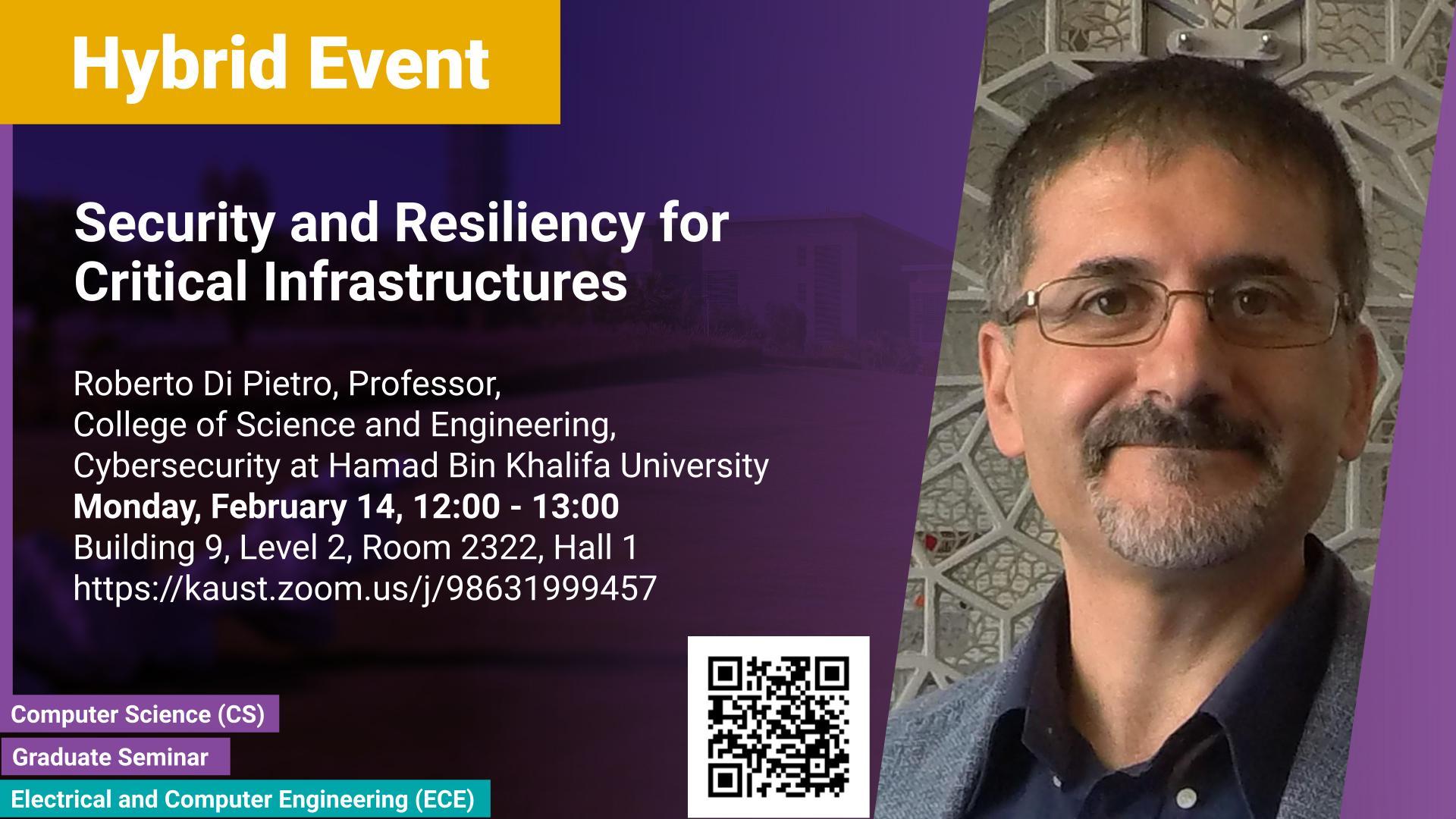Abstract
Our standard of living, nation GDP, and, in some cases, even our safety rely on critical infrastructures (CIs). In particular, being CIs generally perceived as a commodity (think of GPS availability, or avionics & maritime traffic routes and hubs), their security has largely been overlooked. The emergent property is that, nowadays, CIs systems are generally fragile, especially with respect to cyber attacks.
In this talk, I will first discuss a few threats critical infrastructures are subject to. Next, I will move to survey some solutions developed by my research group, intended to provide security and resiliency to CIs. I will then deep-dive into a couple of such solutions. Finally, I will conclude by highlighting topic-related research directions.
Brief Biography
Prof. Dr. Roberto Di Pietro, ACM Distinguished Scientist, is a Full Professor in Cybersecurity at Hamad Bin Khalifa University, College of Science and Engineering (HBKU-CSE). Previously, he was in the capacity of Global Head Security Research at Nokia Bell Labs, and Associate Professor (with tenure) of Computer Science at the University of Padova, Italy. He started his Computer Scientist career back in 1995, serving for a few years as a military senior technical officer with the Italian MoD (Ministry of Defense).
He has been working in the security field for 25 years, leading both technology-oriented and research-focused teams in the private sector, government, academia, and Intl. Organizations (United Nations HQ, EUROJUST, IAEA - International Atomic Energy Agency, WIPO - World Intellectual Property Organization).
His main research interests include AI-driven cyber-security, security, privacy, and resiliency for wired and wireless distributed systems (e.g. Blockchain technology, Cloud, IoT, OSNs, CIs), applied cryptography, intrusion detection, and data science.
Other than being involved in M&A of start-up—and having founded one (exited)—, he has been managing several multi-million-dollar security projects, producing 240+ scientific papers and 15 patents over the cited topics, co-authored three books, edited one, and contributed to a few others.
In 2011-2012, he was awarded a Chair of Excellence from University Carlos III, Madrid. In 2020, he received the Jean-Claude Laprie Award for having significantly influenced the theory and practice of Dependable Computing. He is consistently ranked among the 2% world-top scientists.
